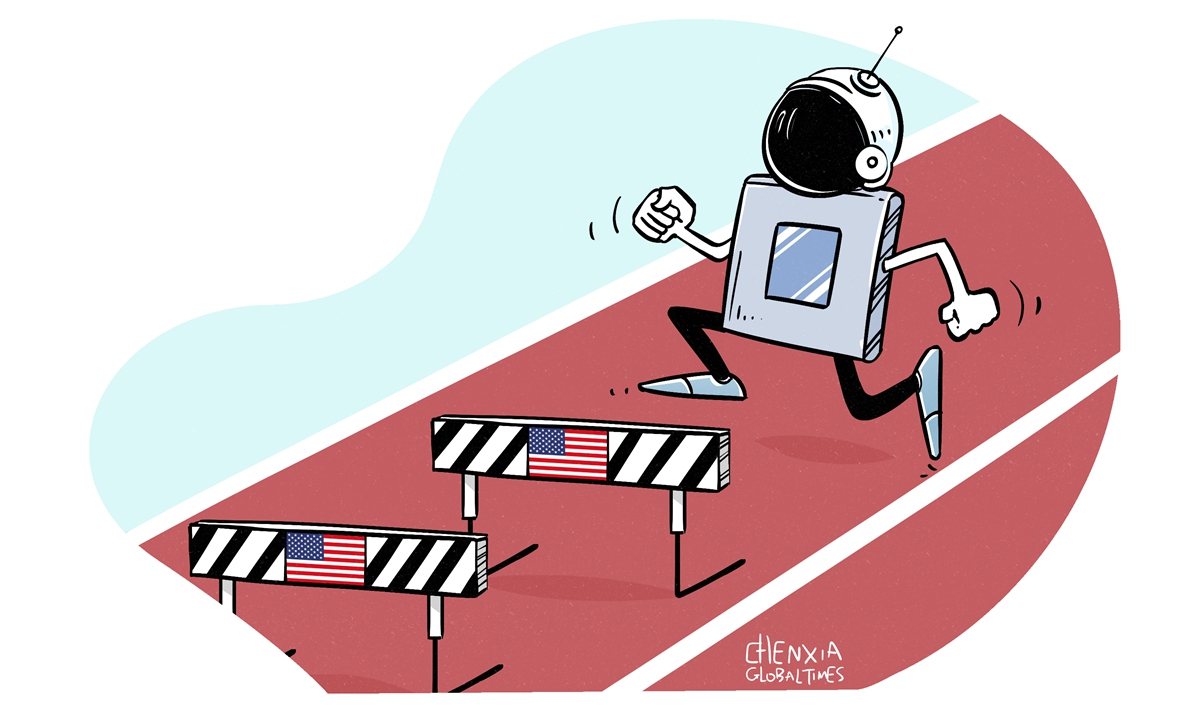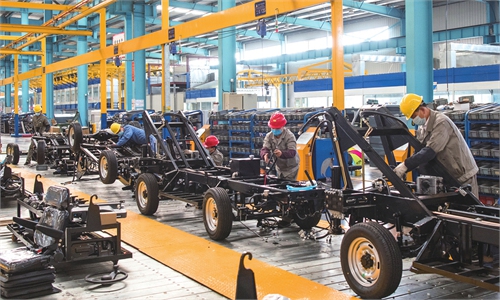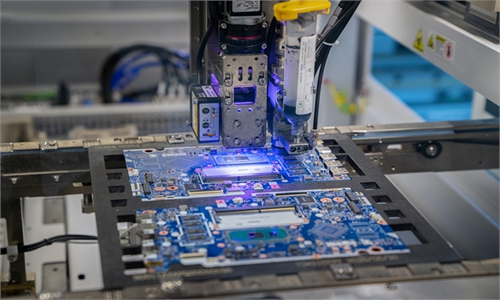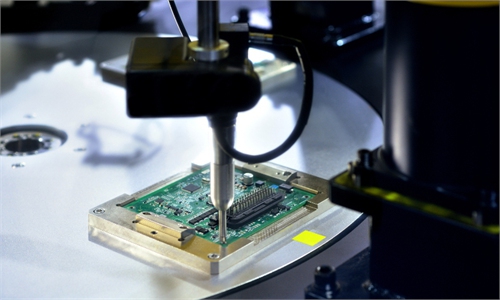
Illustration: Chen Xia/Global Times
With a seemingly impassioned speech on Monday, US Commerce Secretary Gina Raimondo said investments in leading-edge logic chip manufacturing will put the US on track to produce roughly 20 percent of the world's leading-edge logic chips by the end of the decade. It's indeed a big deal, as currently the US is "at zero." However, it's not a good deal, because investment in new production capacity in the semiconductor sector is likely to inflict pain on the industry, which is already under serious overcapacity pressure.As global demand stutters, the semiconductor shortage has turned into a surplus in the global markets. It's a bit ironic that, against this backdrop, the US government is pulling out all the stops to boost domestic semiconductor manufacturing, setting China as a hypothetical enemy. Raimondo likened the implementation of the CHIPS and Science Act to the "space race." However, if there is a space race, political elites in the US should focus on one specific question: who will be the buyer of American-made chips?
As a restructuring of the global industrial chain seems to have accelerated at a time when companies are pushing hard for technological progress, the ongoing Mobile World Congress (MWC) 2024 offers a window from which to observe how important the role of China is in the global electronics industry chain. More than 300 Chinese technology companies are participating in the MWC in Barcelona, Spain, showing their latest innovations and products in a bid to gain a bigger footprint in the global market.
In recent decades, the global electronics sector's center of gravity has made several major shifts, from Western countries to Eastern countries such as Japan and South Korea, and then to China. A modern car can easily have more than 3,000 chips, but cars account for a tiny share of chip demand. Given the huge demand for chips from the electronics industry, China has made itself the world's largest consumer of semiconductors.
Global chipmakers face life-and-death stakes if they lose the massive Chinese market. It deserves the serious attention of top US officials, but, unfortunately, they will likely remain as indifferent as ever.
The US once promoted the space race, hoping to achieve its goal of establishing hegemony in this field. Now, the US repeats its old tricks, trying to establish chip hegemony, but its efforts are doomed to fail. Unlike the space industry, the market plays a key role in the development of the chip industry. American politicians should never forget that China has the world's largest chip market.
Even if the US makes itself into a major manufacturer of semiconductors before 2030, American-made chips still face multiple challenges. In most US manufacturing sectors, productivity is substantially below that in Asian countries. Some analysts believe that US-made chips could be up to 30-50 percent more expensive than chips made in Asia.
The US might perhaps be naive to count on limited subsidies to enhance the competitiveness of US-made chips. The US government is wasting American taxpayers' money. If Washington cannot help the economy build up long-term competitiveness in its manufacturing sector by reducing business costs, then it will be difficult for the US to achieve its goal of producing roughly 20 percent of the world's leading-edge logic chips by the end of the decade.
Some big chip customers, such as Apple, are American companies. Even if some of them might be persuaded to use made-in-US chips under mounting pressure from Washington, high procurement costs will inevitably cause economic losses to those companies. Their purchases of US-made chips may be very limited.
China and the US should cooperate to make sure that the development of the semiconductor industry stays on a healthy and stable track. It is the only way the US can leverage its advantages and revitalize its chip industry.
The author is a reporter with the Global Times. bizopinion@globaltimes.com.cn



